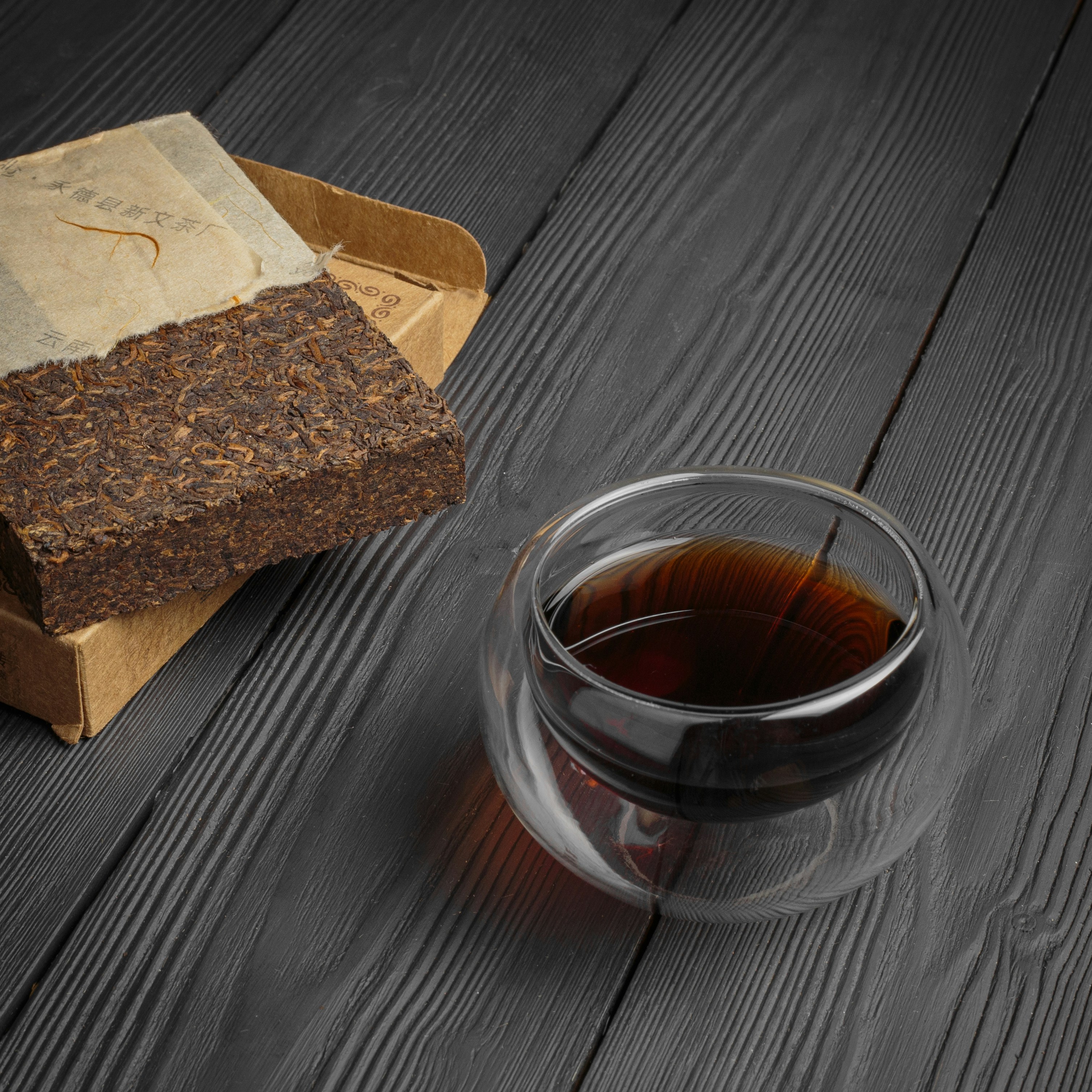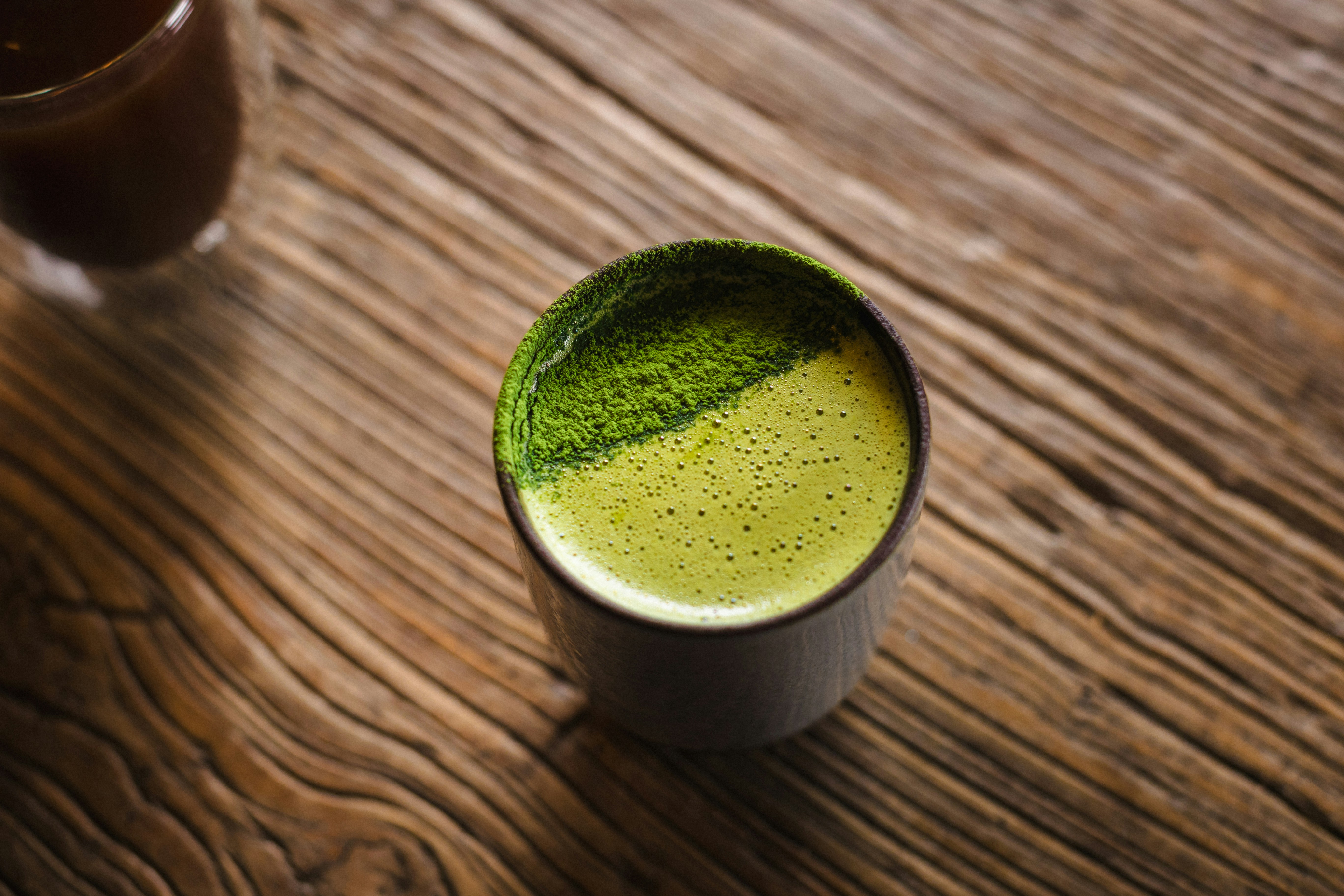Introduction: The Heart of Tea-Passion
Black tea, one of the most cherished beverages around the globe, holds a significant place in various cultures, transcending mere consumption to embody richness in traditions, rituals, and health benefits. With origins tracing back to ancient China, this tea variety has evolved into a fundamental part of social interactions and wellness practices. In many Asian cultures, black tea is more than just a drink; it symbolizes hospitality and refinement.
The cultural significance of black tea is deeply entwined with ceremonial practices, reflecting a legacy that emphasizes mindfulness and connection. Tea ceremonies, such as the Japanese Chanoyu or the Chinese Gongfu tea practice, illustrate the art of preparing and enjoying tea with intentionality and deep respect. These rituals transform the act of drinking into a soothing experience, contributing to a state of reflection and tranquility. When one takes the time to prepare and savor black tea, it becomes an opportunity to engage with the present moment, promoting mental well-being.
Additionally, black tea is celebrated not only for its rich flavor but also for its antioxidative properties and potential health benefits. The polyphenols found in black tea, such as theaflavins and thearubigins, contribute to improved heart health and enhanced metabolism. As such, incorporating black tea into a wellness routine can provide both physical and emotional benefits, serving as a catalyst for a balanced lifestyle.
Understanding the heart of black tea and its esteemed history is essential for appreciating its role in modern wellness practices. It is not merely a beverage but a bridge connecting time-honored traditions with contemporary health-conscious choices. As we explore the multifaceted contributions of black tea, we begin to see its importance as a staple in routines devoted to wellness and mindfulness.
The Health Benefits of Black Tea: A Gift from Nature
Black tea, a beloved beverage around the world, offers a variety of health benefits backed by scientific research. One of the standout attributes of black tea is its rich concentration of antioxidants. These compounds, particularly flavonoids, combat oxidative stress in the body. By neutralizing free radicals, antioxidants may reduce the risk of chronic diseases, such as cancer and heart disease. Regular consumption of black tea has been associated with lower levels of LDL cholesterol and improved artery function, contributing to overall cardiovascular health.
Numerous studies suggest that black tea behaves favorably for heart health. Research indicates that individuals who consume black tea regularly may experience a reduction in the risk of heart attacks and strokes. The polyphenols present in black tea play a crucial role by improving blood vessel function and decreasing inflammation. In combination with other heart-healthy practices, incorporating black tea into one’s diet may serve as a natural means of supporting cardiovascular wellness.
Moreover, black tea can promote gut health by fostering the growth of beneficial bacteria. The polyphenolic compounds found in this beverage may help balance gut microbiota and enhance digestive health. Anecdotal evidence supports this notion, with individuals reporting improved digestion and reduced bloating after incorporating black tea into their wellness routines. Some people have noted that the warm, calming effects of black tea can also provide a soothing experience for the digestive system. Such personal narratives illuminate the potential for black tea to play a positive role in one’s overall health.
In conclusion, the health benefits of black tea extend beyond mere refreshment, presenting it as a valuable addition to any wellness routine. Its antioxidant properties, heart health advantages, and supportive role in gut function make it an excellent choice for those seeking to enhance their health naturally.
Black Tea and Mental Wellbeing: A Source of Calm
The impact of black tea on mental wellbeing is an area of growing interest, particularly in the context of emotional support and stress relief. Many individuals find that the simple act of brewing and enjoying a warm cup of black tea serves as a powerful ritual that contributes to their overall mental wellness. The warmth of the tea, combined with its rich aroma, creates a sensory experience that can alleviate stress and promote a sense of calm.
Scientific studies have shown that black tea contains compounds such as L-theanine, which is known to have calming effects on the mind. This amino acid helps reduce stress levels and enhances focus, creating an ideal environment for mental clarity. By integrating black tea into daily routines, people have reported improved mood and a greater sense of tranquility throughout their day. The ritualistic nature of preparing black tea, whether it be in the morning or during a mid-afternoon break, allows individuals to carve out dedicated moments of self-care in their busy lives.
Anecdotal evidence supports the idea that black tea can act as an emotional anchor. For example, one individual shared how their daily tea ritual has become a moment of pause amidst a hectic workday, allowing them to reset and approach tasks with renewed energy. Others have illustrated stories of hosting tea gatherings with friends, where the shared experience fosters open conversations and emotional support. This communal aspect of black tea highlights its role not just as a beverage, but as a facilitator of connection and mindfulness.
As we examine the ties between black tea and mental wellness, it becomes clear that it serves as more than just a drink. It is a source of comfort, clarity, and calm, enriching the daily lives of those who embrace its soothing properties. Integrating black tea into a wellness routine can thus provide essential support for mental health, making it an invaluable element for many.
Spiritual Rituals with Black Tea: A Mindful Practice
The practice of mindfulness and meditation has gained significant traction in contemporary society, and black tea frequently emerges as a pivotal element in these spiritual journeys. Traditionally appreciated for its rich flavor and aesthetic appeal, black tea has also been recognized for its calming properties, making it a valuable companion during meditation sessions. Many practitioners of mindfulness incorporate black tea into their rituals, utilizing it as a tangible object that fosters a present-moment awareness.
In numerous cultural contexts, tea ceremonies are steeped in ritual and significance. These ceremonies often emphasize the importance of being fully present, encouraging participants to slow down and appreciate each moment—a principle that aligns closely with mindfulness practices. Black tea, with its deep hues and aromatic qualities, can serve as a sensory anchor, helping individuals remain grounded as they work through their thoughts and emotions during meditation.
Personal stories from practitioners illustrate the profound connection between black tea and spiritual exploration. For example, one individual recounts how brewing a cup of black tea became a meditative act in itself. The process of measuring the tea leaves, boiling water, and watching the color change served as a form of active meditation, allowing them to cultivate mindfulness and clarity. Instead of simply consuming the tea, they transformed the act into a sacred ritual, enhancing their overall spiritual experience.
Moreover, the rich history associated with black tea adds layers of depth to its role in spiritual rituals. With its origins steeped in ancient traditions, black tea serves not only as a nourishing beverage but as a conduit for deeper introspection. As individuals sip the warm liquid, they may find that it inspires a sense of tranquility, paving the way for deeper insight and connection with themselves.
Cultural Rituals and Traditions: Tea Across the Globe
Black tea is not just a beverage; it is an integral part of various cultural rituals and traditions across the globe. Many societies have woven black tea into the fabric of their communal life, shaping practices that emphasize connection and togetherness. In China, for instance, the customary practice of tea drinking transcends mere consumption. The traditional Chinese Tea Ceremony exemplifies this relationship, where the act of brewing and serving tea is an art form, embodying values of respect, tranquility, and social harmony. This ritual is often observed during significant life events, such as weddings or family gatherings, forging bonds among families and friends.
Similarly, in the United Kingdom, the tradition of afternoon tea has become synonymous with social engagement. This delightful ritual, which typically features black tea served with a variety of snacks, celebrates the importance of coming together. It serves as a way to pause in the midst of daily activities to foster connection and share stories. The mere act of enjoying a cup of black tea can transform an ordinary moment into a cherished memory, reinforcing social ties and networking opportunities.
In the East African cultures, tea serves as a significant element of hospitality. The well-known Kenyan chai is often shared during visits, symbolizing friendship and warmth. This communal practice is highlighted during various celebrations and gatherings, where sharing a pot of tea epitomizes generosity and the spirit of togetherness.
Across cultures, from the Japanese tea ceremonies to the ritualistic offerings in various Asian countries, black tea personifies more than just a drink; it signifies a connection to heritage, respect for traditions, and the essence of community life. It embodies shared experiences that bring people together, no matter the occasion. Through its myriad of pathways, black tea establishes connections among individuals, fostering a sense of belonging.
Incorporating Black Tea into Your Daily Routine: Practical Tips
Integrating black tea into your daily wellness routine can be both enjoyable and beneficial. With its rich flavor and numerous health advantages, there are various ways to make black tea a staple in your diet. Here are some practical tips that can enhance your experience and ensure you reap its full benefits.
Firstly, consider starting your day with a cup of black tea instead of coffee. Black tea contains caffeine, albeit in smaller amounts than coffee, providing a gentler energy boost without the jitters associated with coffee consumption. Brewing a cup in the morning can create a refreshing ritual that energizes you for the day ahead. Aim to brew your black tea for about 3-5 minutes to allow the flavors and antioxidants to fully develop.
Pairing black tea with breakfast is another effective strategy to incorporate it into your routine. For instance, enjoy it alongside oatmeal or a fruit salad. The tannins in black tea can help enhance the absorption of essential nutrients, making it an ideal beverage choice to accompany meals. Additionally, consider experimenting with different flavors by adding a slice of lemon, a dash of honey, or even spices such as cinnamon for an invigorating twist.
Another great approach is to make black tea the base for refreshing iced beverages. Brew a strong batch of black tea and allow it to cool, then mix it with fresh fruit juices or herbal infusions. This not only keeps you hydrated but also provides a delightful alternative during warmer months. Incorporating black tea in the afternoon can serve as a revitalizing pick-me-up, allowing you to maintain productivity throughout the day.
Lastly, make a habit of enjoying a cup of black tea in the evening, perhaps paired with a light snack. This can serve as a calming ritual that signals the end of your day, enhancing relaxation before bedtime. With these practical tips, integrating black tea into your wellness routine can be seamless and enjoyable, allowing you to experience its many benefits while enhancing your overall health and well-being.
Finding the Right Black Tea for You: A Beginner’s Guide
Embarking on the journey of discovering black tea can be both exciting and overwhelming. With a rich tapestry of varieties available, each boasting its unique flavor profile and origin, the process can seem daunting for a beginner. However, understanding the nuances of different types will help you find the black tea that resonates with your palate.
Black tea comes from the Camellia sinensis plant and is fully oxidized, resulting in its dark color and distinctive, robust flavor. There are several popular varieties to explore, including Assam, Darjeeling, Ceylon, and Keemun. Assam tea, known for its malty sweetness and strong body, is perfect for those who enjoy a hearty cup. Conversely, Darjeeling offers a more delicate and floral experience, often described as the “champagne of teas.” Ceylon tea, originating from Sri Lanka, presents a bright and zesty flavor, while Keemun, hailing from China, is appreciated for its winey notes and subtle smokiness.
To navigate the vast range of black teas effectively, it can be beneficial to consider your flavor preferences and the occasions for which you intend to brew the tea. For instance, a strong Assams might be the ideal choice for a morning boost, whereas a lighter Darjeeling could be enjoyed in the afternoon. Additionally, tea enthusiasts often share stories of their personal journeys in finding their perfect blend. One enthusiast recounted how their palate evolved over time; starting with the boldness of Assam, they eventually gravitated towards the more refined experiences offered by Darjeeling or even blended flavored teas. This exploration is not only about the taste but also about appreciating the cultural significance and stories behind each tea variety.
Ultimately, the best way to find the right black tea is to sample and experiment. Visiting local tea shops or participating in tasting sessions can provide invaluable insights into your preferences. Embrace the journey, and you may discover that black tea offers more than mere refreshment; it brings a sense of calm and enjoyment to your wellness routine.
Frequently Asked Questions About Black Tea: Demystifying Myths
Black tea has garnered a significant following due to its rich flavor and numerous health benefits. However, with popularity comes a myriad of misconceptions. Addressing these myths can help consumers make informed decisions regarding their black tea consumption.
One common concern is related to caffeine content. Black tea does indeed contain caffeine, but the amount varies based on the brewing method and the tea leaves used. On average, an eight-ounce cup of black tea contains approximately 40-70 mg of caffeine, which is less than what is found in most coffee. For individuals sensitive to caffeine, this makes black tea a suitable alternative. Furthermore, it is essential to note that moderate consumption is key. Drinking three to four cups a day is generally considered safe for most people and can be part of a balanced wellness routine.
Another prevalent myth is the idea that black tea can lead to dehydration. Contrary to this belief, research indicates that the hydration properties of black tea contribute positively to fluid intake. While black tea has diuretic properties, the fluids consumed through it more than compensate for any mild diuretic effect, making it a hydrating beverage choice.
Health conditions also pose concerns for some individuals considering black tea. Those with certain medical issues like gastric ulcers or anxiety disorders may need to limit their intake. It is advisable for such individuals to consult with healthcare professionals to understand how their specific conditions relate to black tea consumption.
Overall, the myths surrounding black tea often stem from misunderstandings. By clarifying these points, consumers can enjoy its benefits confidently, whilst being mindful of their personal health needs and preferences. Ultimately, a well-informed approach to incorporating black tea into one’s daily routine can enhance overall wellness.
Conclusion: Sip, Savor, and Celebrate Wellness
Throughout this exploration of black tea and its pivotal role in wellness routines, we have uncovered a wealth of benefits that this ancient beverage offers. Black tea is not just a drink; it is a holistic experience that encapsulates the essence of relaxation, the nourishing power of antioxidants, and the potential for improved mental clarity. By integrating black tea into your daily life, you are not merely consuming a beverage; you are participating in a centuries-old tradition that promotes well-being and connection.
As we have discussed, the rich flavor of black tea can serve as a delightful companion to mindfulness practices, creating an opportunity for individuals to slow down and savor the moment. The act of brewing a cup can become a ritual, allowing for reflection and a nurturing pause in our busy lives. With numerous varieties to choose from, ranging from robust breakfast blends to fragrant Earl Grey, there is a black tea suited for every palate and occasion, making it an ideal addition to any wellness routine.
Moreover, the connections formed over a shared cup of black tea cannot be overlooked. Whether enjoyed alone in quiet contemplation or with friends during social gatherings, black tea fosters a sense of community and togetherness, enriching the experience of wellness. The simple act of gathering around tea has the power to strengthen relationships and create a supportive environment for holistic health.
As you contemplate the next steps in your wellness journey, consider embracing the practice of enjoying black tea as a cornerstone of your routine. Savor its flavors, appreciate its benefits, and celebrate the moments of connection it brings to your life. Elevate your wellness journey and let black tea accompany you on your path to a balanced and fulfilling lifestyle.








Leave a Reply